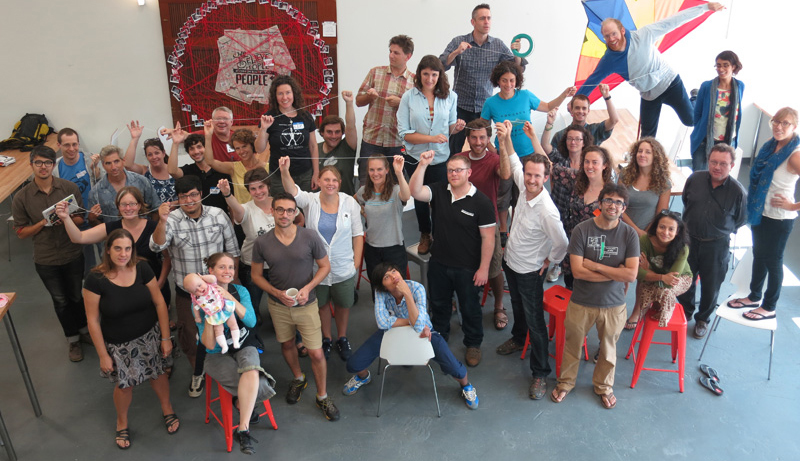
About Public Lab
Mission
Pursuing environmental justice through community science and open technology
About us
Public Lab is rooted in the belief that the best ideas and solutions come from partnerships between on-the-ground communities with deep knowledge of local issues in close, equitable, and sustainable partnerships with networks that bring skills, capacity, science, and technology to bear.
We use science and inquiry to shift power structures so that anyone can be a change agent in addressing environmental health issues, through the creation of monitoring techniques, formation of research questions, selection of research sites, strategies for engaging proactively with stakeholders, and low-cost community exposure interventions.
We raise awareness about health impacts, improve scientific agency, build new scientific and technological skills, and mitigate certain exposures. When people can easily and reliably track local effects associated with environmental injustices—increased flooding, poor air quality, pollution and destruction of wetlands, etc.—they can make better-informed decisions and take action. Broadening participation in science makes science itself better, addressing gaps and incorporating historically excluded forms of environmental knowledge that provide critical insight.
Our history
Public Lab was founded in the wake of the 2010 BP oil disaster, during an information blackout for residents and the rest of the world. In response a group of concerned locals, environmental advocates, designers, and social scientists lofted “community satellites” (made from balloons, kites and digital cameras) over the spill to collect real-time data about its impact. Through a newly created open source platform, contributors stitched over 100,000 aerial images into maps of the coastline before, during, and after the oil spread. These high-resolution maps were featured by BBC and New York Times, among others, allowing residents to speak their truth about what was going on in the Gulf Coast. The success of the grassroots mapping effort galvanized the group to found Public Lab as a new research and social space for the development of low-cost tools for community-based environmental monitoring and assessment.
About the tools and data
The science, technology, and data shared on PublicLab.org are community-created and open source. We utilize our open data to advocate for better environmental management, regulations, and enforcement. These tools enable people to collaborate on and build upon community knowledge, and to share data about community environmental health.
We focus tool development on creating tools that are: low cost; open source; easy to use; built through public participation and collaboration; supported by a network of practitioners; and produce meaningful, understandable, and high-quality data. For more information on terms of our open source work, open hardware, and licensing, visit our license page.
Useful pages
- Contribute - how to participate with the Public Lab community
- Kits store
- Available staff and fellowship positions
- Community partners - Public Lab friends, collaborators, and partners
- Media - publications and press coverage
- Funding
- Annual reports
- Strategic initiatives 2020-22
- Nonprofit values
- Public Lab Code of Conduct
The people behind Public Lab
Public Lab is a worldwide community that is open for all to join, supported by a team of nonprofit staff, board of directors, and fellows.
Contact
The best way to get in touch is by emailing our team at staff@publiclab.org. If you are trying to reach a particular staff member, please visit the Public Lab Nonprofit Staff page.
We receive mail at: 3014 Dauphine St., Ste. E, New Orleans, LA 70117
Phone: 504-358-0647 (Please note that this phone line is not staffed, and technical troubleshooting is not handled on this line. Please send technical questions to the appropriate contact below.)
Kits store
If you need assistance with a kit purchase, please email kits@publiclab.org.
Website assistance
Visit our issues page to report bugs, make feature requests, or check site performance.